Papers by Karen Detlefsen
Archiv für Geschichte der Philosophie, 2007
According to Margaret Cavendish the entire natural world is essentially rational such that everyt... more According to Margaret Cavendish the entire natural world is essentially rational such that everything thinks in some way or another. In this paper, I examine why Cavendish would believe that the natural world is ubiquitously rational, arguing against the usual account, which holds that she does so in order to account for the orderly production of very complex phenomena (e.g. living beings) given the limits of the mechanical philosophy. Rather, I argue, she attributes ubiquitous rationality to the natural world in order to ground a theory of the ubiquitous freedom of nature, which in turn accounts for both the world's orderly and disorderly behavior.
Philosophy Compass, 2009
It has often been noted that Margaret Cavendish discusses God in her writings on natural philosop... more It has often been noted that Margaret Cavendish discusses God in her writings on natural philosophy far more than one might think she ought to given her explicit claim that a study of God belongs to theology which is to be kept strictly separate from studies in natural philosophy. In this article, I examine one way in which God enters substantially into her natural philosophy, namely the role he plays in her particular version of teleology. I conclude that, while Cavendish has some resources with which to partially alleviate this tension, she is nonetheless left with a significant difficulty. 422 Margaret Cavendish on the Relation between God and World
The Cambridge History of Philosophy of the Scientific Revolution
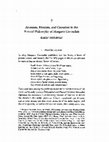
The Seventeenth Century, 9/2 (1994), 260. Clucas seems sli^dy more swayed by Cavendish's antiatom... more The Seventeenth Century, 9/2 (1994), 260. Clucas seems sli^dy more swayed by Cavendish's antiatomism in her Observations given her repudiation of a vacuum and her endorsement of the nonatomic nature of matter's parts in that book. But even here, he notes how material parts' interrelations 'recall atomic interactions' (p. 262). Jay Stevenson, 'The MechanistVitalist Soul of Margaret Cavendish' ['MechanistVitalist'], Studies in English Utemture, 36 (1996), 536. Stevenson's concerns and approach are very different from my own. He believes that the persistir^ atomism in Cavendish's work is a reflection of Cavendish's conception of psychology, and that her disingenuous attempts to disguise her enduring atomism arc in themselves informative of her psychological theories. I appeal to his article because he has identified what I take to be a real difficulty with Cavendish's atomism that (I believe) requires treatment if we are to make sense of her natural philosophy. Moreover, resolving this difficulty is also helpful in dealing with her monism and theory of occasional causation. So, while Stevenson's focus is on human psychology, mine is on her broader natural philosophy, ttou^ my conclusions have consequences for any part of nature, including her theory of psychology. In o&ring the following account of Cavendish's natural philosophy, I start from the assumption that Cavendish's philosophy is internally coherent, and I try to fimd tiiat coherence. I take that guiding assimiption to be anathema to Stevenson's overall project Robert Hu^ Kargon also thinks Cavendish is an atomist, but he seems to hold this belief because he focuses cjcclusively upon the Poems, the only book in which it is clear that Cavemlish endorses atomism. Robert Hugh Kargon, Atomism in England from Hariot to Newton (Oxford: Clarendon Press, 1966), 73-6. ' Anna BittigelB also notes this element of Cavendish's ideas on atomism: 'Cavendish's interest in atomism was less an interest in physical theories of matter than a &scination with a metaphor that served to explain political and psychological conflict ...' (Anna Battigelli, Margaret Cavendish and the Exiles of the Mind [Bxifes], (Lexington: University Press of Kentucky, 1998), 49). See also, Emma L. E. Rees, Margaret Cavendish: Gender, Genre, Exik [Gender] (Manchester; Manchester University Press, 2003), 57.1 agree with Battigelli and Rees on the normative element of Cavendish's concern with atomism, but she is also, I «hil1 argue, interested in matter theory and the relation between matter and politics. ' I am not making a historical claim here. Cavendish and Spinoza were rough contem poraries, but Cavendish would not have been femiliar with any of his work as she read only English, and none of his texts were translated into Engjish during her lifetime. Rather, there are many points of conceptual affinity between the two, an insist made by Susan James. See The Philosophical Iimovations of Margaret Cavendish' ['Itmovations'], British Journal for the History of Philosophy, 7/3 (1999), 2i9 There are crucial differences between the two, and perhaps ie principd one is the 6ct that Cavendish, but not Spinoza, believes that a transcendent, immaterial God exists. While she claims to bracket discussions of God in natural philosophy, leaving considerations of him to the theologians (e.g. PL 3,143; OEP 217), she does occasionally appeal to God in order to make sense of the natural world; see
Philosophy in review, 2000
Feminist History of Philosophy: The Recovery and Evaluation of Women's Philosophical Thought
In this chapter, I examine similarities and divergences between Du Châtelet and Descartes on thei... more In this chapter, I examine similarities and divergences between Du Châtelet and Descartes on their endorsement of the use of hypotheses in science, using the work of Condillac to locate them in his scheme of systematizers. I conclude that, while Du Châtelet is still clearly a natural philosopher, as opposed to modern scientist, her conception of hypotheses is considerably more modern than is Descartes’, a difference that finds its roots in their divergence on the nature of first principles.
Descartes' Meditations, one of the most influential works in western philosophy, continues to... more Descartes' Meditations, one of the most influential works in western philosophy, continues to provoke discussion and debate. This volume of original essays by leading established and emerging early modern scholars ranges over all six of the Meditations and explores issues such as scepticism, judgement, causation, the nature of meditation and the meditator's relation to God, the nature of personhood, Descartes' theory of sense perception and his ideas on the nature of substance. The contributors bring new insights to both central and less-studied topics in the Meditations, and connect the work with the rich historical and intellectual context in which Descartes forged his thought. The resulting volume will appeal to a wide range of scholars of early modern thought.

Philosophy
Emilie Du Châtelet (b. 1706–d. 1749) was a French philosopher, author, and translator who worked ... more Emilie Du Châtelet (b. 1706–d. 1749) was a French philosopher, author, and translator who worked primarily in natural philosophy, but also wrote on language, produced Biblical criticism, tackled questions surrounding virtue and happiness, and grappled with the nature of liberty given her understanding of the physical world and of God. She wrote and published, in her lifetime, on fire (having conducted a range of experiments on the topic at her family’s estate at Cirey), on natural philosophy more generally, and on the vis viva controversy. Much of her work was published posthumously, including work on optics, happiness, the Bible, language, and Newtonian philosophy. She was an avid translator, often developing her own original positions in her liberal changes made to texts in translation. This is especially true of her translation of Mandeville’s Fable of the Bees. Her translation of Newton’s Principia was the first translation into French of that work and remains the standard trans...
HOPOS: The Journal of the International Society for the History of Philosophy of Science
Descartes and Cartesianism, 2017
HOPOS: The Journal of the International Society for the History of Philosophy of Science, 2015

History, Philosophy and Theory of the Life Sciences, 2016
As a practicing life scientist, Descartes must have a theory of what it means to be a living bein... more As a practicing life scientist, Descartes must have a theory of what it means to be a living being. In this paper, I provide an account of what his theoretical conception of living bodies must be. I then show that this conception might well run afoul of his rejection of fi nal causal explanations in natural philosophy. Nonetheless, I show how Descartes might have made use of such explanations as merely hypothetical, even though he explicitly blocks this move. I conclude by suggesting that there is no reason for him to have blocked the use of hypothetical fi nal causes in this way. Keywords Descartes • Teleology • Methodology • Hypotheses • Nature of life Descartes was a practicing natural philosopher. His areas of research included a specifi c interest in investigating the phenomena of life. He treated human, animal, and plant bodies as distinctive kinds of bodies, and he afforded them separate scientifi c 1 treatment, both in practice and in his written work. On 18 December 1629, he wrote to Mersenne that he was beginning a study of anatomy (AT I, 102) 2 , by which he meant the anatomy of living bodies. The fruits of his anatomical and physiological investigations appeared in various written forms throughout his life, including Traité de l'homme (hereafter Treatise), the fi fth part of Discours de la méthode (Discourse), a planned but unwritten fi fth section of the Principia Philosophiae (AT VIIIa, 315/CSM I, 279; Principles), the fi rst 16 articles of Part I of Passions de l'âme (and various comments scattered throughout the remainder of that text; Passions), La Description du corps humain (Description) which also deals with 1 I use the term "science" and its cognates for ease of expression, mindful of the fact that our meaning of the term most closely aligns with Descartes ' "natural philosophy". 2 I use the following abbreviations to refer to editions and translations of Descartes' works:



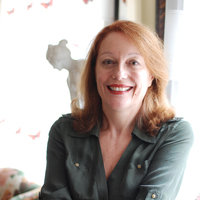
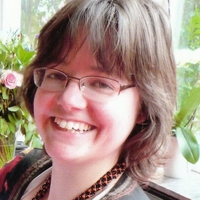


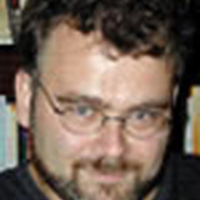
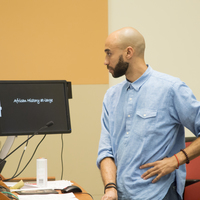
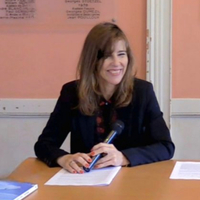

Uploads
Papers by Karen Detlefsen